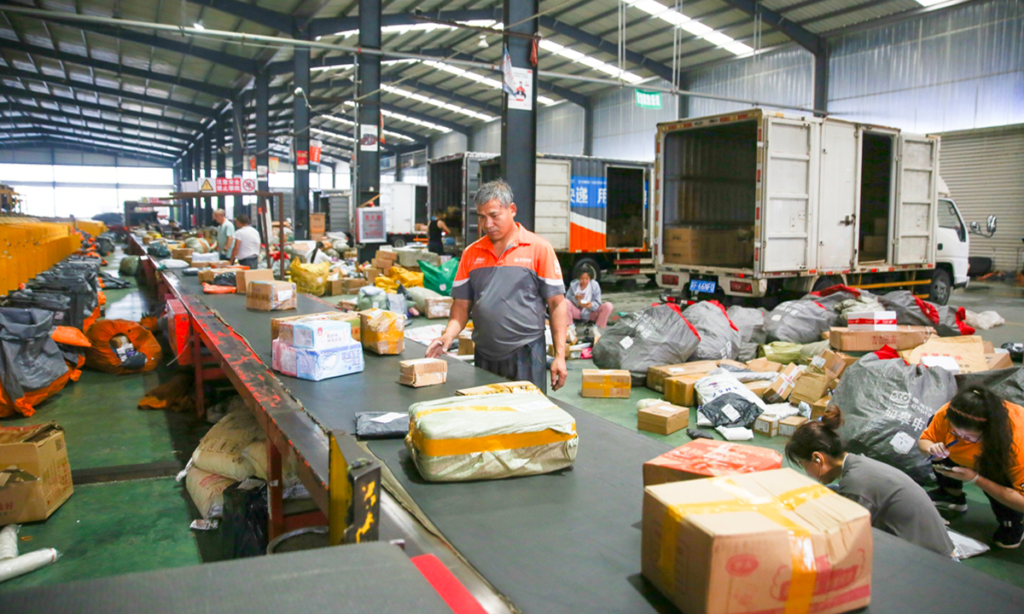Stimulus measures poised to boost H2 consumption, investment: expert
Starbucks, the world’s largest coffee shop chain, achieved a strong recovery in China in the third quarter of fiscal 2023 (ended on July 1) with a stellar performance in all aspects, the company said in a statement sent to the Global Times on Thursday.
Net revenue rose 60 percent year-on-year to $821.9 million. In-store sales rose 46 percent year-on-year, with an additional 237 stores opened, more than the previous two quarters combined and a record high. Starbucks operates nearly 6,500 stores in the Chinese mainland.
“We’ll double down on investment and product innovation, store experience, digitalization and people, to create even more distinct advantages to capture the limitless opportunities in China,” said Belinda Wong, president of Starbucks China.
Yum China, owner of the KFC and Pizza Hut chains in the Chinese mainland, said on Tuesday that revenue reached $2.65 billion in the second quarter, ended on June 30, up 25 percent on a yearly basis, while net profit jumped 138 percent to $197 million.
Joey Wat, CEO of Yum China, said that with 655 new stores opened in the first half – 468 KFC stores and 169 Pizza Hut stores -“we are on track to meet our expansion goals for the year.”
Yum China’s fiscal year 2023 targets remain unchanged: to open 1,100 to 1,300 net new stores in China, according to a note the company sent to the Global Times on Thursday.
High-end foreign fashion brands also saw a business boom in the Chinese market.
For example, sales of LVMH, the world’s largest luxury group, rose by 17 percent in the second quarter, with a sharp rebound in China to offset a slowdown in the US, where historic inflation is eroding consumer confidence.
While some foreign firms are happy with their recent gains in China, riding on an economic rebound, others have a more cautious view, citing the challenging environment as reflected in recent economic data.
British consumer goods giant Unilever said last week that China’s declining property market and exports had sent its consumer sentiment to a historic low, Reuters reported.
Separately, many Wall Street analysts have downgraded their forecasts for cosmetics giant Estee Lauder ahead of its quarterly earnings report scheduled for later this month, citing concerns around the bumpy recovery in its key China market, a Bloomberg report said.
It’s not unusual for foreign-funded companies in many sectors to have different outlooks on their growth in the Chinese market, observers said. What’s more important is that they should grasp opportunities by making more effort, rather than citing the macro environment as the key factor, they said.
According to Zhang Yi, CEO of the iiMedia Research Institute, some Western multinationals that have been present in the Chinese market for decades aren’t reacting fast enough to changes in Chinese consumer behavior.
“The pandemic in the past three years curbed consumption, and consumer habits changed to some extent,” Zhang told the Global Times on Thursday.
There’s also more intense competition from domestic firms for market share.
“Many emerging domestic brands have quickly figured out how to market their products to young and newly affluent Chinese consumers. These brands have targeted products and campaigns, and some Western conglomerates are losing ground,” Zhang said. This is particularly evident in the cosmetics sector.
Foreign-funded companies need to realize that the market is always here with its huge potential and robust resilience. But if they “don’t make changes to address consumer needs, they will miss growth opportunities,” Zhang remarked.
In terms of the macroeconomic environment, experts widely expect a strong recovery in the second half, with consumption playing a bigger role as an economic driver, following the top leadership meeting last month.
Despite subdued growth in the second quarter, China’s consumer market is still on a faster development path compared with developed economies, according to Zhang.
Wang Qing, chief macroeconomic analyst at Golden Credit Rating International, told the Global Times that stimulus measures have been rolled out and more are in the pipeline to boost market expectations and consumer confidence.
Chinese authorities on Monday announced 20 measures to boost consumption, including support for expanding property and vehicle sales, underscoring the country’s intensifying efforts to ensure a steady economic recovery.




